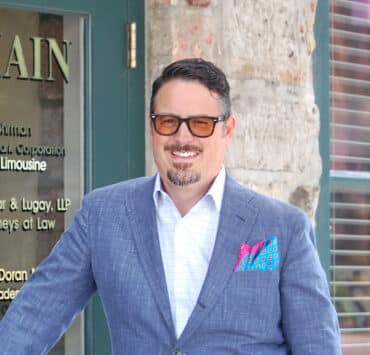|
Getting your Trinity Audio player ready...
|
The COVID-19 pandemic changed most aspects of life, including healthcare delivery around the world, but how has it changed the way animals receive medical treatment? That question has been at the center of conversations at Zoetis, the American company that produces more animal medicine and vaccinations than anyone else.
Scott Mayhew joined Zoetis in 2013 after going in-house at Pfizer. As senior corporate counsel, he is part of a strong legal team that has worked with marketing and other internal groups to help Zoetis push resources and recommendations to veterinarians and others.
Zoetis is supporting its veterinary customers to help limit the financial impact of their practices as they navigate the pandemic together. Legal and others worked diligently to keep Zoetis’ services uninterrupted. “Our supply levels are strong, and we continue to proactively monitor them with our distributors,” CEO Kristin Peck said in a statement.
Additionally, the company staggered work shifts in manufacturing facilities and moved nonessential employees to a work-from-home model to limit possible COVID-19 exposure to essential employees who make and distribute products. The company also stayed in contact with experts to monitor virus spread in animals.
Within months, Zoetis developed the capability to perform rapid PCR testing to detect COVID-19 in companion animals. The company also posted a robust URL and FAQ section on its website, filled with information for clients, links to online learning opportunities, and other important resources. This information educates veterinarians as they manage concerns from their clients regarding the health and wellness of their animals.
Zoetis’s leaders also worked to adjust their company culture in response to these challenges. Peck says workers need increased options. “I would argue we need flexibility policies that flex. Not just allow people to work from home, but also being flexible about when people work. Workers have earned the right to do work differently,” she said in an interview with Fortune. Mayhew and his team helped Zoetis create new legal policies to allow for this increased flexibility.
As the pandemic started to stabilize, Zoetis turned its attention to helping other groups and donated COVID-19 vaccines to zoo animals. The company sent more than eleven thousand doses of an experimental vaccine it developed to help protect one hundred species in almost seven zoos and animal facilities. This initiative came about in response to confirmed COVID cases in San Diego Zoo’s gorillas.
“Up until now, we have been using public barriers at certain habitats to ensure social distancing, along with enhanced PPE worn by staff to protect our susceptible species from COVID-19,” said Dr. Alex Herman, vice president of veterinary services at the Oakland Zoo, in a press release. “We’re happy and relieved to now be able to better protect our animals with this vaccine and are very thankful to Zoetis for not only creating it, but for donating it to us and dozens of other AZA-accredited zoos across the US.”
Zoetis’s legal team supported the development of its vaccine formulated for animal species, and the company completed its safety studies within just eight months before presenting its findings at the World One Health Congress. “While thankfully a COVID-19 vaccine is not needed in pets or livestock at this time, we are proud that our work can help zoo animals at risk of COVID-19,” said Mahesh Kumar, senior vice president of global biologics at Zoetis.
The COVID-19 pandemic underscored the link between human and animal health, and Zoetis is committed to its ongoing efforts to support the health and wellness of animals.


